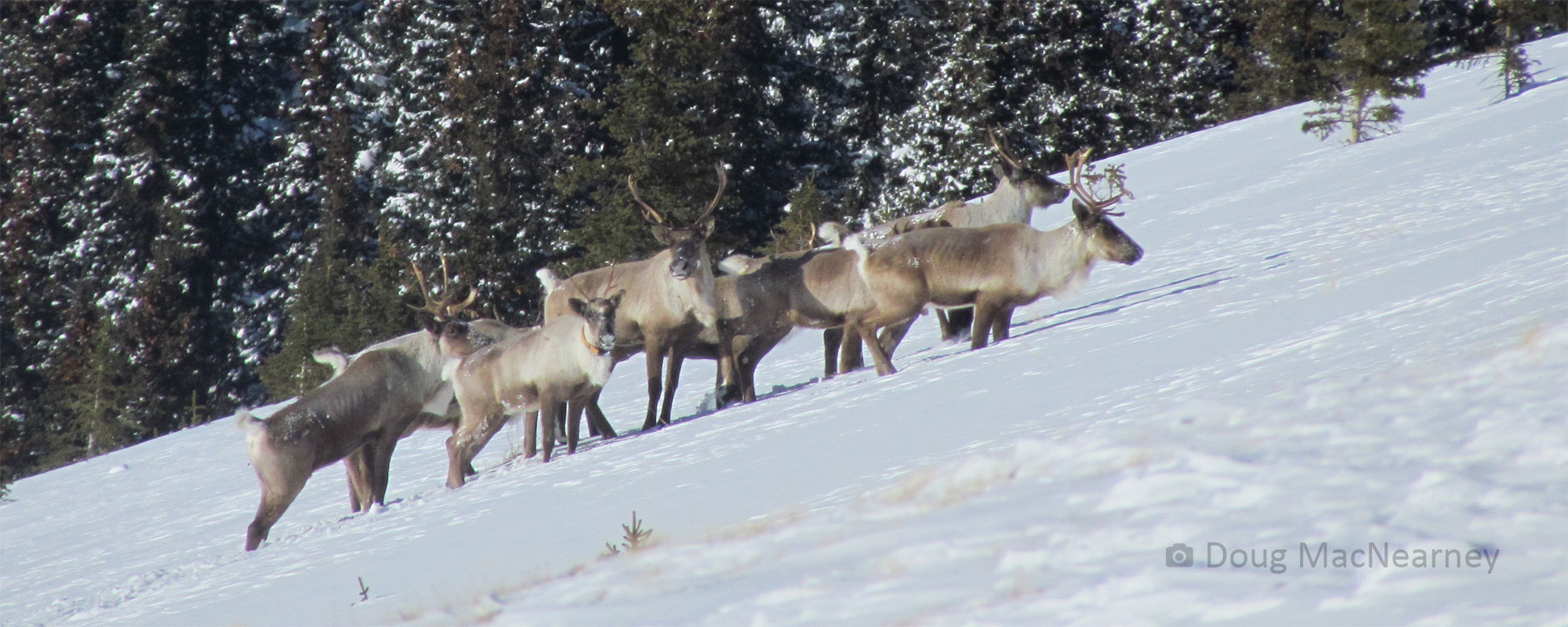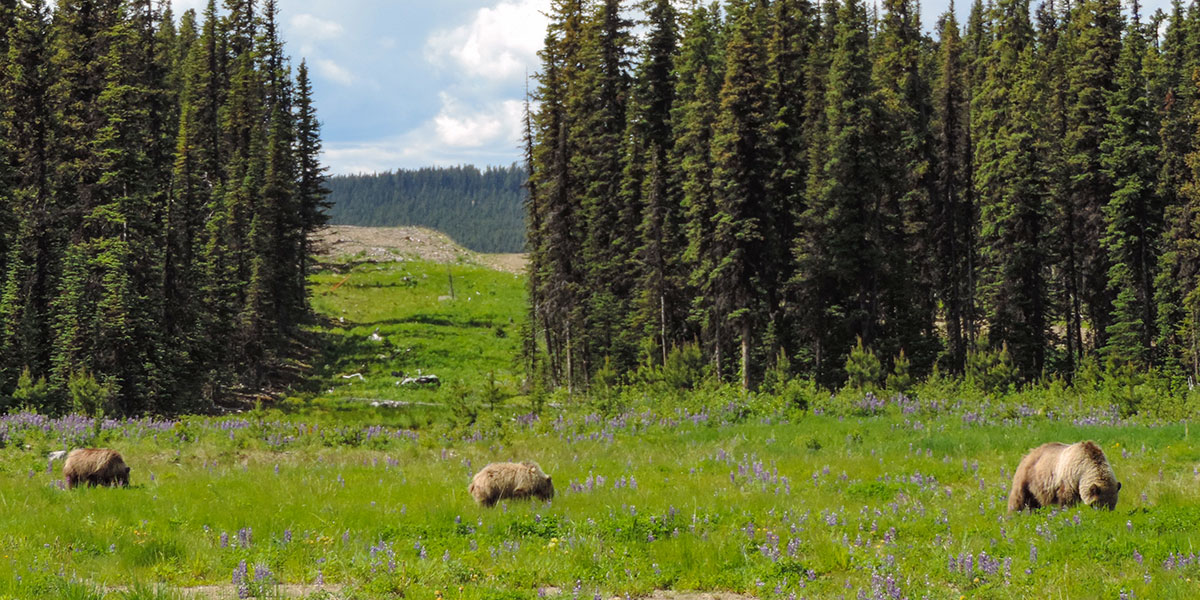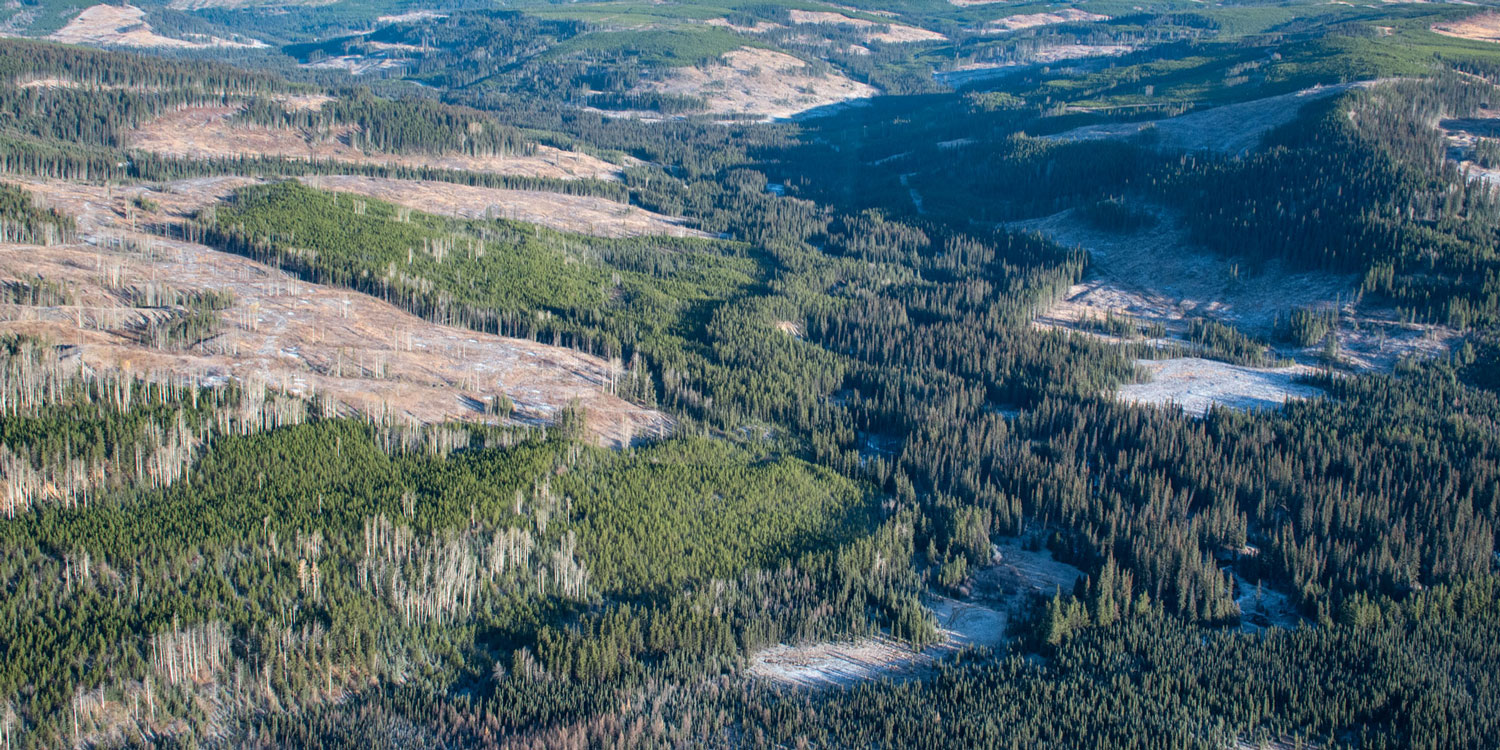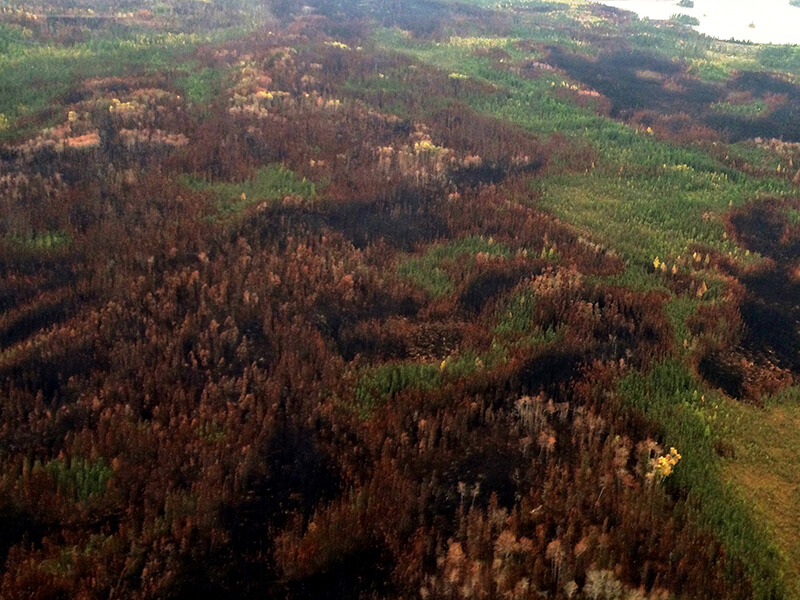
Abstract
In Alberta, Canada, mountain pine beetle (MPB) infestations overlap with threatened caribou and grizzly bear ranges. While MPB is a natural part of the ecosystem, increased intensity of infestation due to fire suppression and a changing climate has required mitigating actions in the form of MPB control treatments, including accelerated forest harvesting, prescribed burns, and single-tree cut and burn. However, little is known on how MPB and MPB treatments affect understory shrub and forb forage taxa important to threatened caribou and grizzly bear populations. Using data collected in west-central and north-west Alberta, we investigated how the occurrence and abundance of 25 shrub and forb taxa varied among MPB kill, MPB treatments: single-tree cut and burn, harvesting, fire, and uncut forest strata. We determined that MPB kill and MPB treatments impacted 13 forage taxa preferred by threatened caribou and grizzly bear populations. These caribou and grizzly bear forage taxa generally had a positive response to MPB kill and single-tree cut and burn, a positive response to fire, or a positive response to MPB kill, single-tree cut and burn, and fire. Our results suggest that less-intensive MPB treatments like single-tree cut and burn might balance the threat of MPB against maintaining food resources and habitat for threatened species. As MPB continues to be a significant problem in Alberta and across the boreal forest, the results from our study, combined with ongoing assessments on the impact of MPB on wildlife species will provide essential information for evidence-based landscape management.
Citation
Cameron J.R. McClelland, Barry Nobert, Terrence A. Larsen, Karine E. Pigeon, Laura Finnegan. “The impact of mountain pine beetle outbreaks and their treatment methods on the abundance of plant-foods important to caribou and grizzly bears.” Forest Ecology and Management, Volume 532, 2023. https://doi.org/10.1016/j.foreco.2023.120841.















